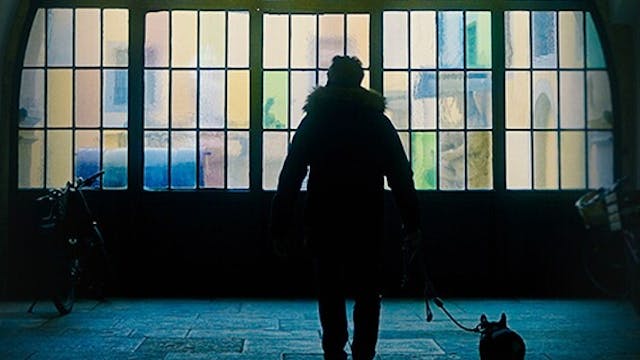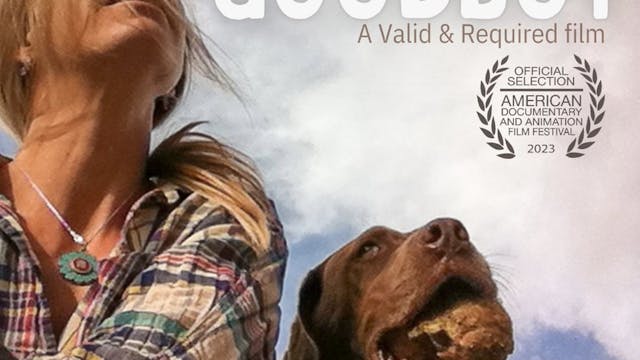ALL POLITICS IS LOCAL feature film review (interview)
FESTIVAL AUDIENCE FEEDBACK VIDEOS
•
11m
ALL POLITICS IS LOCAL, 94min., Australia
Directed by Chris Eipper, Declan Mortimer Eipper
In Ireland, If you re hungry enough, you ll dig up the tar on the road with your teeth to get a vote. It s not only the other parties who are a threat to you; it s your running mate. Indeed, it is the internal rivalry that can be the most bitter and acrimonious , as well as the more entertaining. Based upon three decades of ethnographic research, "All Politics is Local" is the story of a rural Irish election campaign that becomes as suspenseful as it is surprising; a memorable drama with a vivid cast of characters leading to an unexpectedly poignant conclusion.
Get to know the filmmakers:
1. What motivated you to make this film?
My introduction to local level Irish politics when I was fledgling ethnographer. I was intrigued by what I witnessed and wanted to capture it on film as well as give a written account of it. Returning to Ireland after some twenty years to continue my research, my commitment to the idea intensified. A decisive moment was the discovery that Denis O’Donovan (the protagonist of our film) had been elected to represent the local constituency. Denis had first befriended me late in 1975 when he invited me to join “the Wren Boys” on St. Stephen’s Day. I then briefly joined his herring fishing crew, attended his father’s Wake, and we bonded.
2. From the idea to the finished product, how long did it take for you to make this film?
Three decades from the initial idea to the shooting of the film in 2007; a further decade-and-a-half from capturing the footage to ultimate completion. Due to funding and other constraints, it took ten years to get a rough-cut from the 99 hours of footage we shot. Re-edited reversions of it were screened to academic audiences in Ireland and Australia until we settled on a final cut in January 2023. Denis O’Donovan consenting to being filmed on the campaign trail allowed shooting to get started; him granting the access he did made the project feasible. Even more crucial was the fact that my son, Declan, had grown up wanting to make films. After graduating from film school as a prize-winning filmmaker, he agreed to adapt his approach to allow me to make the kind of ethnographic film to which I was committed.
3. How would you describe your film in two words!?
Politics Irish-style.
4. What was the biggest obstacle you faced in completing this film?
Funding. I was paid a salary by La Trobe University when shooting the film and was granted money to purchase camera equipment. Apart from that, the film was entirely self-funded. This meant that work on it had to answer to other professional commitments, while also being delayed by health issues. A number of technical difficulties could have been more easily overcome if the financial constraints hadn’t been so severe.
5. What were your initial reactions when watching the audience talking about your film in the feedback video?
We were pleased that the reviewers all mentioned elements of the film that we valued highly ourselves; that they had entered so thoroughly into the spirit of what we had set out to depict. We felt vindicated. The film resonated with them on a number of key levels. It was gratifying to have reached a receptive audience beyond the academic domain. The responses were both genuine and generous, of a kind that made us think that these weren’t the only cinephiles who would find the film both informative and appealing
6. When did you realize that you wanted to make films?
Chris: as an undergraduate at university.
Declan: as a fifteen-year-old who then started trying to write scripts.
7. What film have you seen the most in your life?
Chris: I’m not sure, but the film that most influenced ours was the exceptional Australian documentary Rats in the Ranks.
Declan: as a child, Gentlemen Prefer Blondes; as an adult viewer of documentaries, Rats in the Ranks.
8. What other elements of the festival experience can we and other festivals implement to satisfy you and help you further your filmmaking career?
Apart from opening up distribution channels that might enable us to recoup costs, given our present circumstances, I’m not sure. The feedback was most welcome.
9. You submitted to the festival via FilmFreeway. How has your experiences been working on the festival platform site?
Remarkably hassle-free.
10. What is your favorite meal?
Chris: Home-made ice-cream and caramel sauce.
Declan: Passionfruit baked cheese-cake.
11. What is next for you? A new film?
Declan: A documentary on my martial arts school, the culture I’ve fostered and the people who have benefited from it.
Chris: A screen adaptation of one of my novels would be nice. We have both (independently) written scripts we would like to see taken further if ever the opportunity arose.
Up Next in FESTIVAL AUDIENCE FEEDBACK VIDEOS
-
KATABATOC FLIGHT short film review
KATABATOC FLIGHT, 13min., USA
Directed by Matt Costa
A katabatic wind, named from the Greek word κατάβασις or katabasis meaning “descending”, is a drainage wind, a wind that carries high-density air from a higher elevation down a slope under the force of gravity.
https://vero-watch.com/pages/ka... -
THE WALK short film review
THE WALK, 12min., Germany
Directed by Johnny Stern
The Walk is the story of a Jewish man stuck living in Germany to be with his only daughter. Everyday he is faced with reminders of the Holocaust as he walks his dog through the city which was known for antisemitism and was a beehive of Nazi activ... -
GOODBOY short film review
GOODBOY, 40min., USA
Directed by Ashley Mosher
When a woman’s beloved dog, Kenya, is diagnosed with terminal cancer during the Pandemic, the adventurous photographer attempts to outrun the dog's death and stumbles into the haunting childhood memories of her dying Father. Facing the painful decisi...


